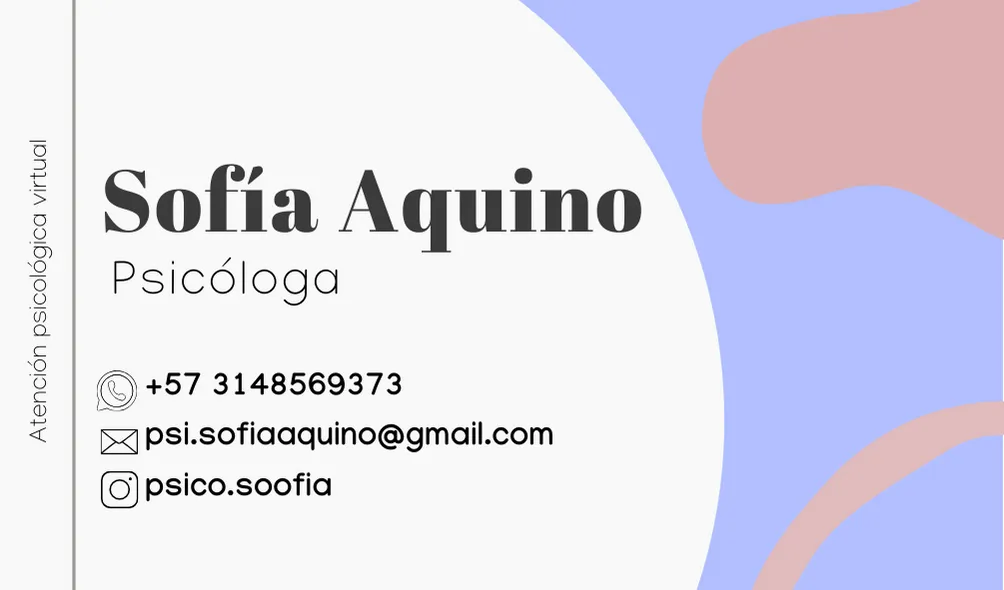
Sentirse constantemente "en falta" es tener la sensación de que lo que tenemos en este momento no es suficiente y que, con un poco más de algo, nos sentiríamos mejor.
Esto se ve muy claramente con las posesiones materiales, pero la sensación de inconformidad y necesidad de más también se presenta en nuestras relaciones con otros, en la universidad o el trabajo, incluso, en la relación con uno mismo. Frases como "Si fuese un poco más extrovertido tendría más éxito en la vida" o "No encuentro pareja porque no soy suficientemente inteligente/guapo/agradable" ilustran esta creencia de que si tuviéramos más de algo nos iría mejor.
La respuesta corta a estos planteamientos es que ¡Definitivamente no! Puedes tener mágicamente eso de lo que crees que careces, y seguir estando en el mismo lugar sin ningún tipo de cambio importante. Pienso que la respuesta está en otro lugar, no necesitas más de algo, necesitas saber cómo trabajar con lo que ya tienes. Pero para entender este punto un poco más, veamos una metáfora que me compartió mi esposo hace un par de días atrás. (Él no recuerda bien donde la leyó o escuchó, yo busqué el origen en google pero no tuve éxito). Haré una paráfrasis de esta metáfora y compartiré algunas ideas al respecto.
Un niño le pide a su papá que le compre un helado. Su papá le compra una barquilla de una bola, de una porción. El niño come únicamente de un solo lado de la bola, en algún punto, el helado se cae. El niño empieza a llorar, entonces pide una barquilla de dos bolas. Cuando la recibe, empieza a comer desde un único lado, nuevamente. Unos minutos más tardes, las bolas de helado se vuelven a caer.
Como vemos, el niño no necesita más y más helado. Necesita saber cómo manejar lo que ya tiene, para sacarle el máximo provecho. Una vez lo tenga dominado, podrá comerse una o dos porciones adicionales sin que ninguna de estas se derrame. ¿Puedes ver esta lección en algún área de tu vida?
Entiendo esta métafora desde el siguiente lugar: La insatisfacción o el inconformismo no es siempre resultado de la carencia o ausencia de algo. A veces tenemos algo valioso muy cerca de nosotros pero no hemos adquirido el conocimiento o la experiencia suficiente para saber cómo manejarlo. Creemos que necesitamos algo diferente, algo más, pero lo que verdaderamente necesitamos es un poco de disposición, paciencia y práctica. Eso no está del lado de afuera, eso no implica "más helado". Eso está del lado de adentro, y está enfocado en nuestra capacidad para equivocarnos, querer hacerlo mejor y aprender, para obtener, posteriormente, una ganancia o satisfacción de ello. Aplica para las relaciones, los trabajos, las oportunidades que tenemos, incluso, en lo que nos constituye como personas.
Querer ir por más o tener ambiciones no es el problema. Pero a veces vamos demasiado rápido, saltándonos pasos, y luego nos preguntamos por qué no hemos tenido el resultado que deseábamos.
Sin duda, esta metáfora puede tener diferentes aristas y posibilidades de interpretación. Será un gusto leer en los comentarios cuál es tu punto de vista :)


To constantly feel "lacking" is to have the feeling that what we have at the moment is not enough and that, with a little more of something, we would feel better.
This is seen very clearly with material possessions, but the feeling of nonconformity and need for more is also present in our relationships with others, at college or work, even in our relationship with ourselves. Phrases such as "If I were a little more extroverted I would be more successful in life" or "I can't find a mate because I'm not smart/handsome/likeable enough" illustrate this belief that if we had more of something we would do better.
The short answer to these statements is definitely not! You can magically have that thing you think you lack, and still be in the same place without any major change. I think the answer lies elsewhere, you don't need more of something, you need to know how to work with what you already have. But to understand this point a little more, let's look at a metaphor my husband shared with me a couple of days ago (he doesn't remember well where he read or heard it, I googled the origin but was unsuccessful). I will paraphrase this metaphor and share some thoughts on it.
*A boy asks his dad to buy him an ice cream. His dad buys him a single scoop, single serving tub. The child starts eating from one side only, at some point the scoop falls out. The child starts to cry, so he asks for a two-ball bowl. When he receives it, he starts eating from one side only, again. A few minutes later, the scoops of ice cream fall out again.
As we see, the child does not need more and more ice cream. He needs to know how to handle what he already has, to get the most out of it. Once he has mastered it, he will be able to eat one or two additional servings without any of it spilling out. Can you see this lesson in some area of your life?
I understand this metaphor from the following place: dissatisfaction or nonconformity is not always the result of lack or absence of something. Sometimes we have something valuable very close to us but we have not acquired the knowledge or experience to know how to handle it. We think we need something different, something more, but what we really need is a little willingness, patience and practice. That is not on the outside, that does not mean "more ice cream". That is on the inside, and it is focused on our ability to make mistakes, to want to do better, to learn and to get a gain or satisfaction from it. It applies to relationships, jobs, the opportunities we have, and also the different characteristics that constitute us as people.
Wanting to go for more or having ambitions is not the problem. But sometimes we go too fast, skipping steps, and then we wonder why we didn't get the result we wanted.
Undoubtedly, this metaphor can have different edges and possibilities of interpretation. It will be a pleasure to read in the comments what your point of view is :)

Todas las imágenes de esta publicación son de mi autoría, editadas en snapseed. El contenido también es original y propio.
All images in this post are my own, edited in snapseed. The content is also original and mine.